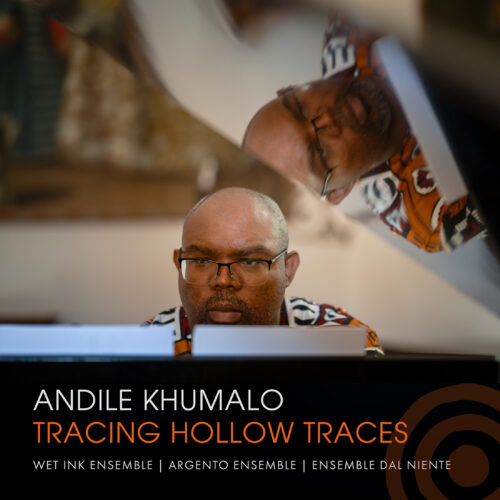Andile Khumalo is a South African composer whose hyper-detailed musical expression, with his nanometric instrumental precision as well as its textural quivering, is to be placed in the tradition of French spectralism. Heir, then, to Tristan Murail or Gérard Grisey, it would be superficial, that said, to deduce that this black artist is a musical “rootless”, drinking from a white colonialist source. We can hear such simplistic comments from here. Comments that Khumalo himself would deny. Indeed, take the trouble to read the program notes written by the composer and you’ll discover rich references to the tightly interwoven counterpoint of the mbira dza vadzimu of the Shona of Zimbabwe, to the heterophonic weaving of the horn ensembles of the Banda Linda horn ensembles of the Central African Republic, or the ghostly motifs produced by the Nyungwe bagpipe ensembles of Mozambique. Add to this the complex multiphonic interplay of the umrhubhe and uhadi music of South Africa’s isiXhosa people, which Khumalo calls “African spectralism”.
Tracing Hollow Traces is therefore a humbling experience and a fantastic opportunity to open up and understand the highly learned nature of traditional Black African music, a fact largely underestimated by Westerners.
The nine compositions presented on this beautifully captured album, for a wide variety of formations (from large chamber orchestra to solo piano), constitute a most fascinating proposition that brilliantly enhances the sometimes rigid universe of strict atonal music. Admittedly, this is demanding music, requiring precise, sustained attention to be fully appreciated. Its abstract portraitist textures suffer no deference to the current neoclassical/pop facility, but the abundance of suggested colors and the active dynamism of the writing will certainly make it a stimulating listening experience for music lovers who are fuelled by curiosity.
A very high level of musical writing and playing, soaked in an invigorating cerebrality.
























